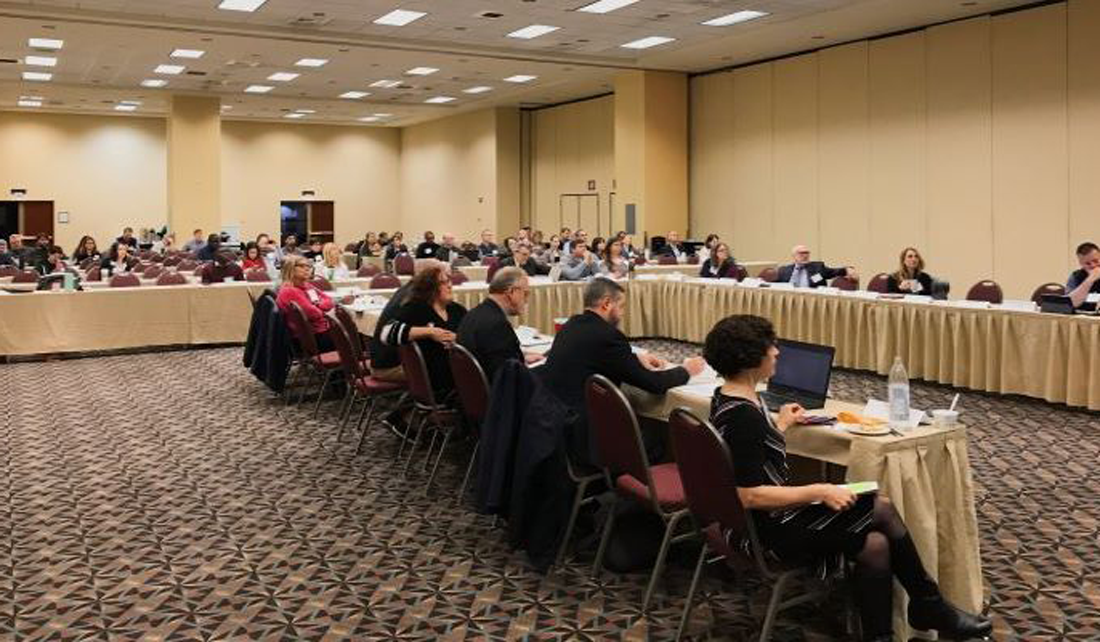
Illinois-Indiana Sea Grant and Illinois Extension Stormwater Specialist Eliana Brown is the facilitator for the Illinois Nutrient Loss Reduction Strategy (NLRS). By using a stakeholder partnership approach, the goal of the NLRS is to reduce nutrient flow from farm fields, wastewater treatment plants and urban stormwater runoff into the Mississippi River. This nutrient runoff makes its way down the river into the Gulf of Mexico, causing a hypoxic dead zone.
Read the full article about this work in Illinois Extension’s Partnering to Improve Water Quality in Illinois by Lisa Merrifield. Excerpt below.
A Farm Bureau lawyer, a Sierra Club scientist, and a wastewater treatment plant operator walk into a conference room . . . It’s no joke. On December 3-4 in Springfield, these three and about 120 more people gathered to hear the latest on Illinois’ Nutrient Loss Reduction Strategy (NLRS). “We were happy to see such a great turnout. Since its adoption in 2015, we have focused on stakeholder partnerships to move the strategy forward. Together, we are greater than the sum of our parts,” says University of Illinois Extension and Illinois-Indiana Sea Grant Specialist and NLRS facilitator, C. Eliana Brown.
Illinois’ NLRS is a statewide strategy to reduce nutrients – mostly nitrogen and phosphorous – that flow into the Mississippi River from farm fields, wastewater treatment plants, and urban stormwater runoff. This nutrient-rich runoff depletes oxygen, causing hypoxia, or the “dead zone,” in the Gulf of Mexico that is unable to support fish and other aquatic life and damages the region’s economy. Illinois isn’t the only state contributing to the problem. All Mississippi River Basin states contribute, and most have strategies to mitigate nutrient loss. “Illinois participates in the Gulf Hypoxia Task Force, which includes twelve states,” says Brown. “Illinois serves as a model for engaging partners, including agricultural, urban and environmental stakeholders. With the third largest city in the nation, and 24 million acres of agricultural land, our state has significant nutrient sources. Therefore, we take the effort to reduce nutrient loss very seriously.”
Strategies to reduce nutrient runoff from Illinois, outlined in the 2015 NLRS plan, are monitored through annual data collections and documented every two years, most recently in November of 2019. Brown notes, “Water quality improvement can take a long time, and the trends aren’t always linear. While many factors affect water quality, some of which universities are just now starting to research, what we do know is that people from all sectors are doing much more now than when we started.”
Read the full article: https://extension.illinois.edu/blogs/building-entrepreneurial-communities/2020-02-25-partnering-improve-water-quality-illinois
Illinois-Indiana Sea Grant is a part of University of Illinois Extension and Purdue Extension.

